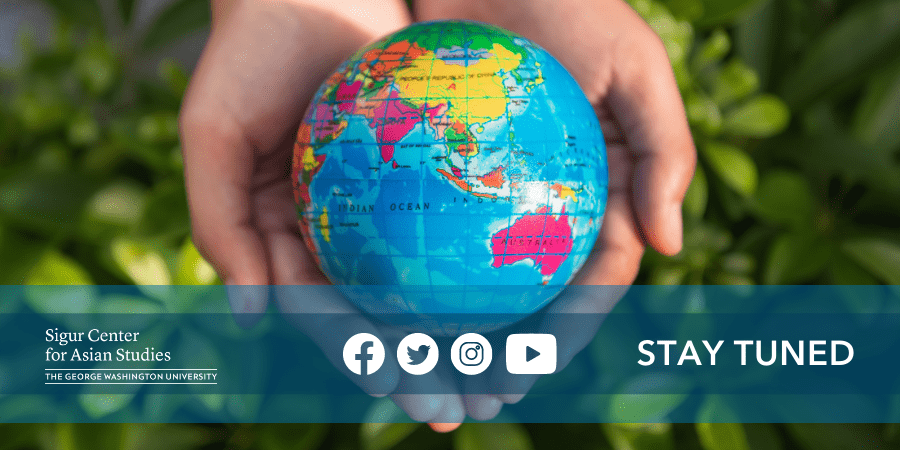Sigur Center for Asian Studies
At the Elliott School of International Affairs
Viewing Message: 1 of 1.
Notice
Notice
This site uses cookies to offer you a better browsing experience. Visit GW’s Website Privacy Notice to learn more about how GW uses cookies.

